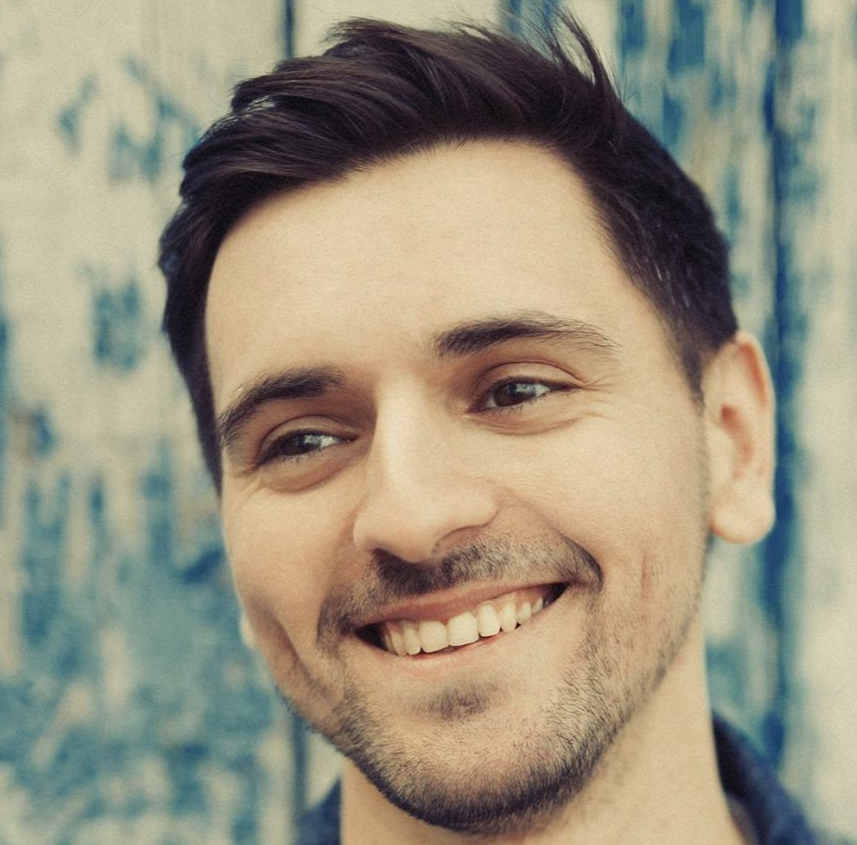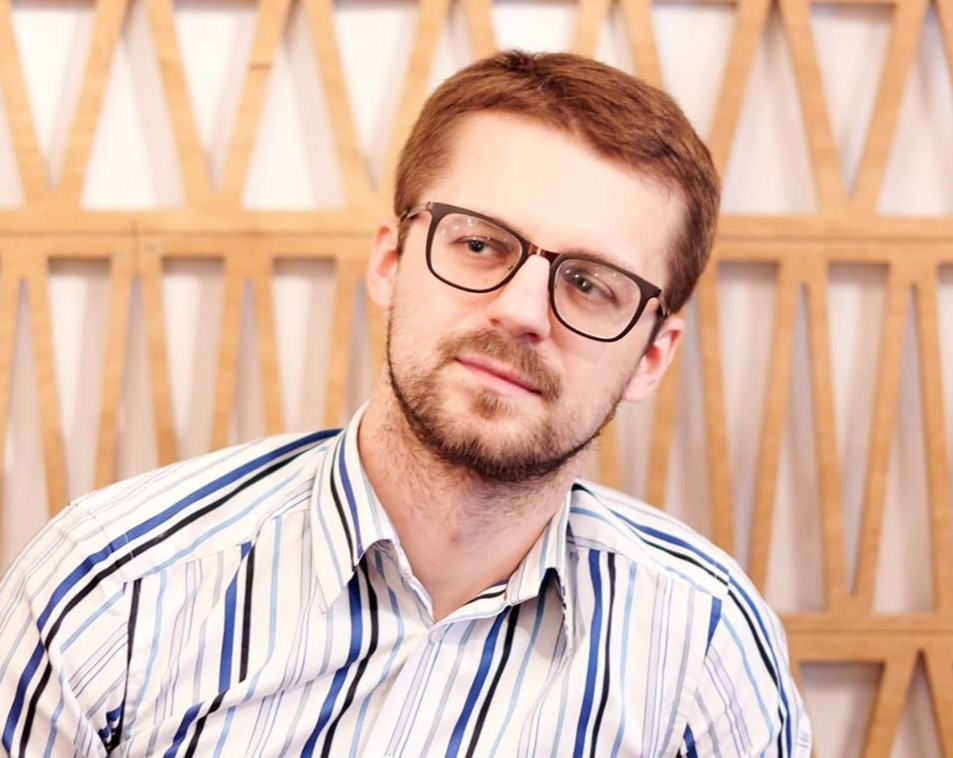Viktor “Frenchman” Pylypenko
Viktor Pylypenko, callsign “Frenchman”, had gone to the frontline to protect Ukraine straight from the Maidan. After the war, he came out and got support from his fellow servicepeople. The veteran traveled to the US under an OpenWorld program in order to learn more about human rights advocacy and help other LGBT-military men and women to come out.
_5b9c625f1f.jpeg)
On finding a sense of self
I should have come out earlier. I envy those teenagers, who realize their homosexuality while studying at school and come out to their parents. My own acceptance was painful, “with blood” – at the age of 20 or 21 I fell in love with a straight guy, who was a friend of mine. It was a shock both for him and me. I remember I had fought with my internal homophobia for a long time. I don’t wish anyone to take such a difficult path. I believe that schools should have sex education classes, so the kids won’t suffer, but instead understand these things and live with dignity.
I don’t envy boys and girls from small towns, where coming out is still dangerous. I know those who were bullied. But there are those who are not coming out and simply live lives full of love, sexual experiments and impressions. However, to me, living a closeted life is a terrible thing. Now I can breathe much more freely and talk to people and persuade others. It is easier to do that with an open face and heart, especially with military experience under my belt – it ruins all the myths and clichés.
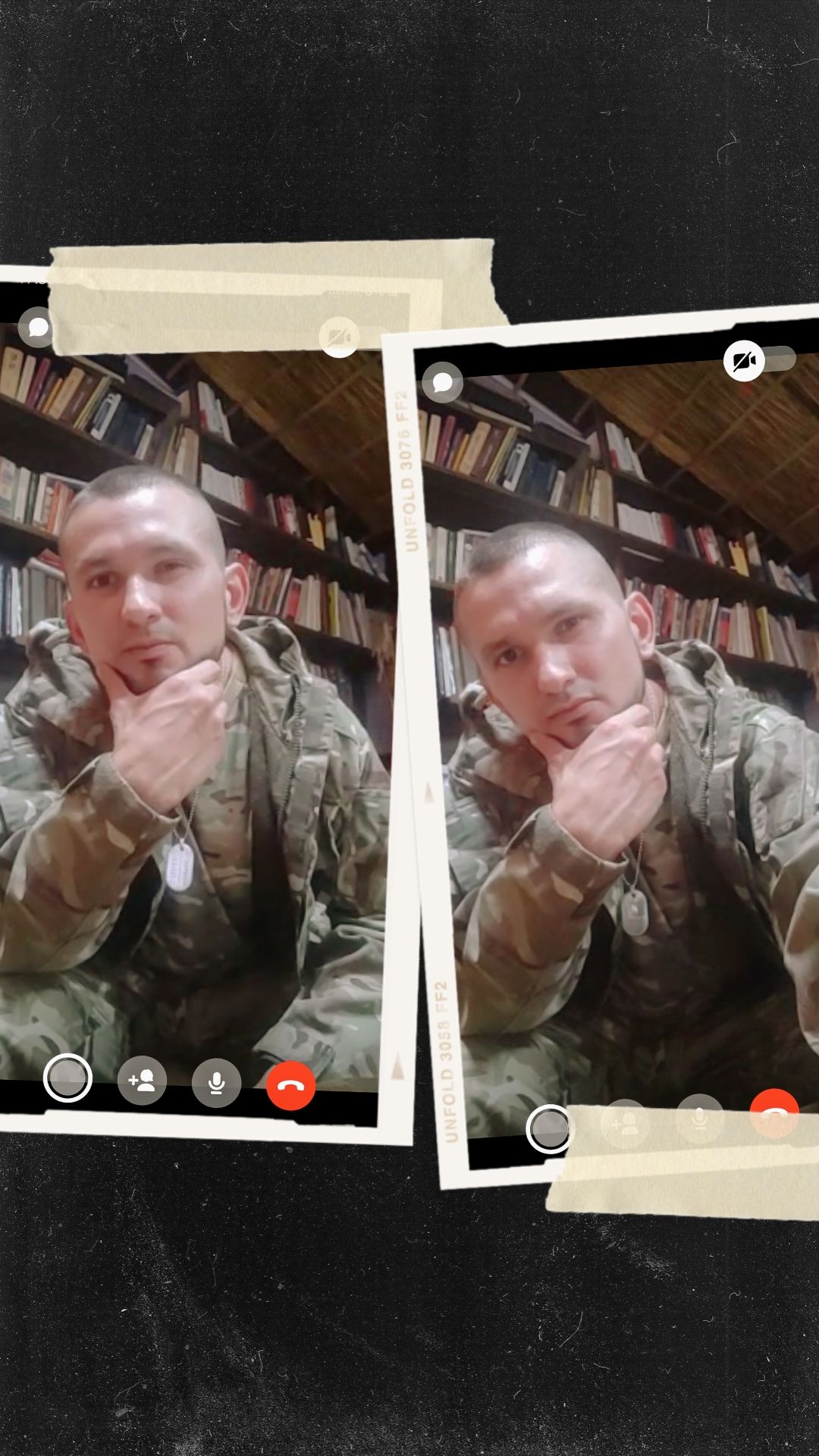
Gone to war straight from the Maidan
I had gone to war right from the Maidan – in order to defend and uphold a European Ukraine. To me it was more than a fight for the territory. I don’t sacralize territory at all. A constitutional order and peace in my country was of far greater importance at that time. And values for which our Maidan stood up as well. During my time on Maidan I took part in street fights, I saw the mass killing of the Heavenly Hundred, fire in the Trade Unions Building, barricades on fire. I couldn’t have possibly let it all happen in vain.
I’m sure that Russia went to war with Ukraine because we dared to veer off its imperialist course. Due to the fact that we have refused to be its colony, which we had been for a long time. My decision to defend Ukraine was plain and simple – we can’t lose Ukraine the same way we did 100 years ago.
The things I saw in USA – I want the same in Ukraine
Before the war I worked in the UAE, in Dubai, and could have returned there, however I made a decision to stay in Ukraine. I’ve realized that in the future LGBT people in my country can and should live freely, have marriage rights, be happy and not persecuted. I have found the strength inside myself to bring in these changes.
Brothers-in-arms don’t care about the orientation
I don’t have any regret over my decision to join “Donbas” battalion. My squad had protected Mariupol, and we haven’t surrendered our positions. And the fact that the city remains under Ukrainian control is our achievement as well. Overall, I participated in two crucial combat phases during the war. Now we’re mostly dealing with positional warfare and there are enough people who are carrying service on the frontline. There’s no need for me to be there with my kind of knowledge and skills. But if there’s to be an escalation, I would go back to war. The combatant syndrome is not a myth. I happen to know a lot of men and women who have suffered and are still suffering from it. After the shelling of Shyrokine by the Russian artillery I had a temporary deafness and I’m still experiencing some hearing impairments in both of my ears.
It feels as if my head is stuck – sometimes pain and stress can appear out of nowhere.
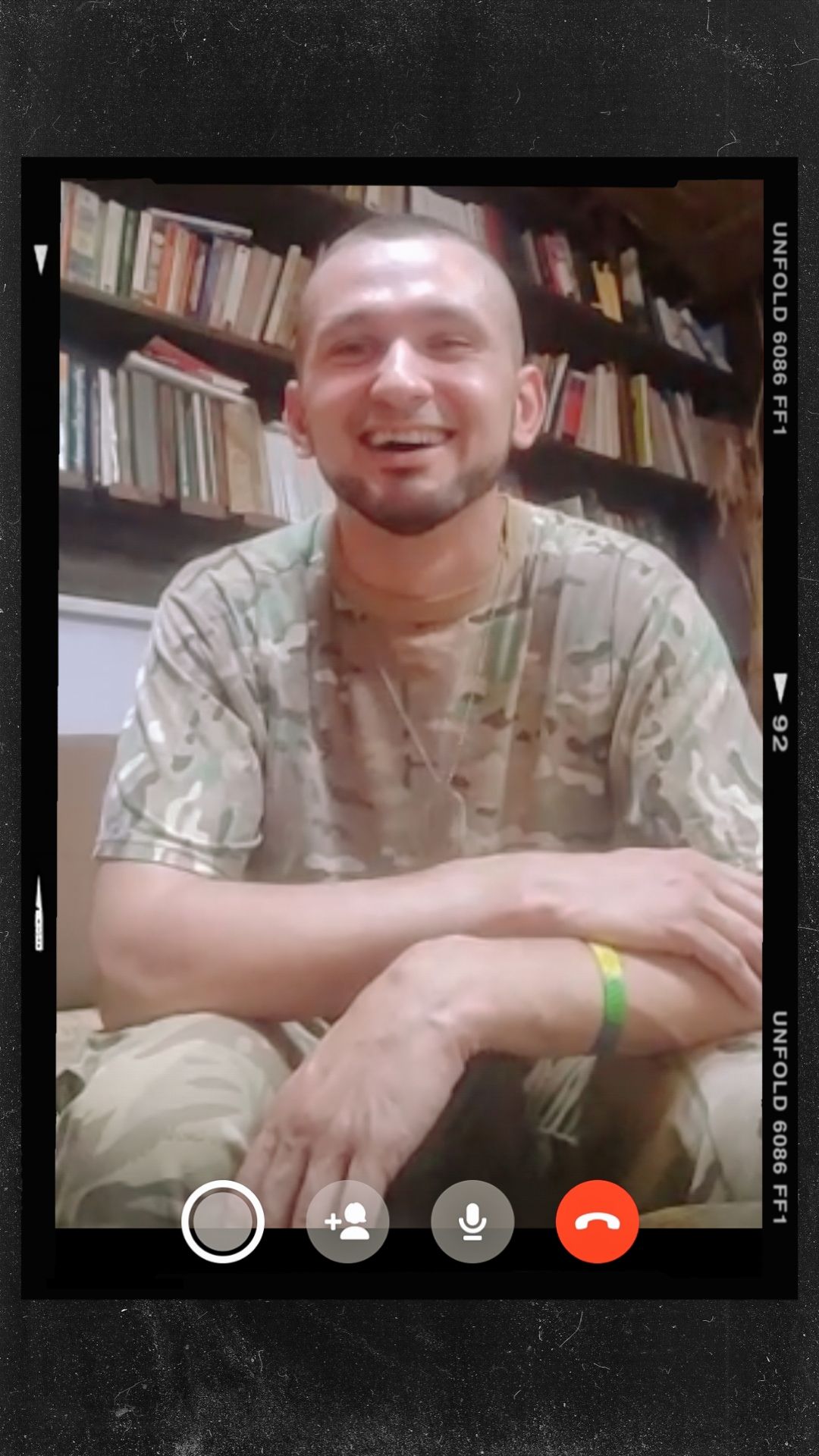
On LGBT-servicepeople movement
There’s a good Ukrainian expression – "Quiet breath" (it means “To act on the sly”). It is vital to do at least something. Not everything, but at least something. Currently I’m working and engaging in LGBT human rights activism simultaneously. I’m heading a movement of Ukrainian LGBT-military men and women, veterans and volunteers. I’m initiating changes in this niche and I’m always happy when we have successes in certain activities.
We have a public Facebook-group of LGBT-military men and women and their allies where we have over 1300 members. If we see an interest coming from a person, we invite them to join private groups for volunteers and servicemen and women – “Achilles brotherhood” (60 homo- and bisexuals), “Sisters-in-arms”” (15 lesbian veterans, led by Nastia Manzhula) and a group of transgender soldiers under the leadership of an open transgender and volunteer Sebastian Romanov. The latter group is quite small, comprising 4 persons, however I consider that an achievement. One of the group’s members is preparing for the transitioning into a woman. She fought in the war as a man and got injured near Avdiivka.
Private groups for military men and women who serve this country is not a normal thing. However, one has to understand the extent of person’s willingness to open themselves. The resilience of a person to withstand the burden of a war, artillery shelling and so on, doesn’t necessarily indicate its readiness to stand for their rights as a gay person. This is unfortunate, because it is an indicator of civic consciousness in civilian life.
The war logic is rather simple – there’s an enemy on one side and your fellow brothers and sisters-in-arms on the other. Civilian life is a complicated and tricky thing. Generally, LGBT-servicemen and women don’t believe in their abilities or strength, they do not understand the importance of their coming outs for changing the situation. Many are constrained by concerns of being not accepted.
However, 90 percent of these fears are false. When I came out, only few people from my squad expressed a homophobic attitude. The rest have reacted in a normal way and supported me. It was quite unexpected as I didn’t know what the reaction would be from this purely masculine men’s squad. Now I can say with an absolute confidence that the fellow servicemen don’t care about sexual orientation. If you’re a good soldier, you didn’t let anyone down and you carried service in the same way that others did, then no one would have any complaints about you. The true friends have remained my friends, regardless of the circumstances.
After my coming out there were other steps towards openness among military men and women. Many veterans and soldiers have come out, including Vasyl Davydenko, Nastya “Confederate” (came out as lesbian), Sebastian Romanov (came out as transgender), Yaryna Chornohuz from the marines (came out as bisexual), Vlad Miroshnychenko, commanding officer of a self-propelled gun and Dmytro Havryliuk. By the way, Dmytro was the victim of several blackmailing attempts. He decided that he wouldn’t stand it anymore.
After Viktor Davydenko’s coming out, he was assaulted by the group of five people near his house. Society and media have condemned the perpetrators. They had probably thought their actions would put LGBT servicemen and women “into the right place”, however the society never accepted that. I believe this instance serves as an indicator, pointing out that we are ready for changes.
Every public organization, every activist has made their own contribution into the evolution of society and changing the public attitude towards LGBT community. I know quite a few soldiers and far-right activists who have changed their homophobic stance on LGBT issue in recent years. When these people saw LGBT military men and women on the frontline, a situation they couldn’t have imagined in the civilian life, when they saw our faces and heard our stories, it had changed their attitude.
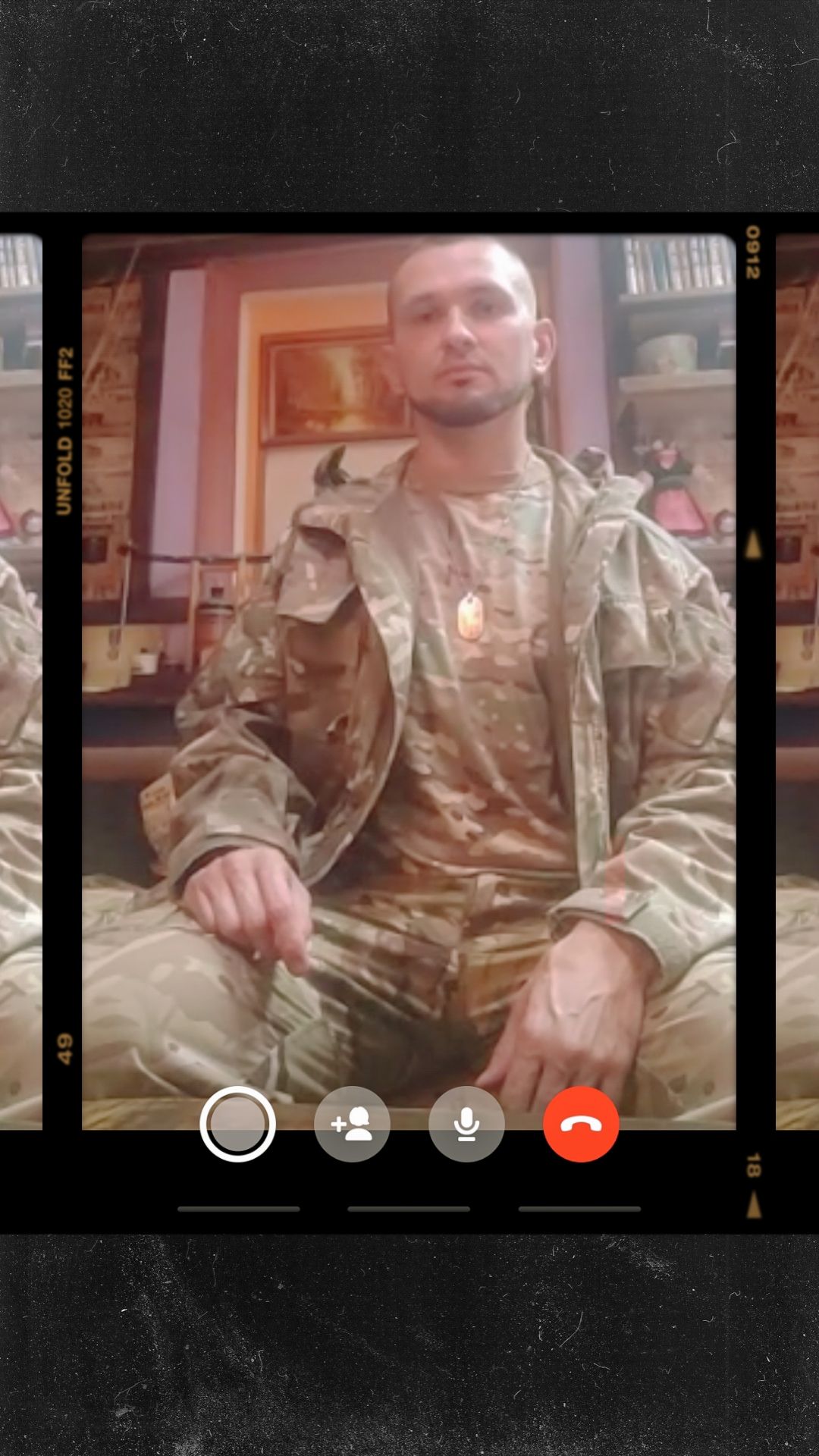
Openness is important, as miscreants are taking advantage of the victim’s position. Those who hold and spread this hatred usually turn out to be cowards who don’t want to take a risk by attacking those who feel free and prideful. The power of marginal and homophobic movements lies in fear of those who are afraid of them.
The things I saw in USA – I want the same in Ukraine
I visited the US under the OpenWorld program from American Councils. For 10 days we, civic activists, had got acquainted with the management system and human rights movement. I spent three days in Washington D.C. and saw how senators work. Later on, together with an LGBT-rights group, we went to Chicago where we lived in American families. Every day we had meetings with LGBT NGOs. We had encounters with the people who had gone through the toughest times for LGBT people in modern American history. It turned out that American service people were one of the driving forces in advocating for the rights of LGBT community in the US. Americans are great champions in terms of cementing their achievements in democratic institutions and in laws.
Life in USA
In the USA I lived at the house of a guy named Dan, who’s openly gay. He also gave me a tour of Chicago. It was very interesting to me to see how people play bingo and Dan brought me to a place where there were happy aged people who are friends with each other, who support each other. I was stunned by this vivid contrast between the US and Ukraine. In our country the life of an old gay man is drastically different, especially if he’s alone.
In the United States you can feel the spirit of free life. There is less ignorance and more readiness to accept you for who you are. For instance, I saw one guy entering the subway train carriage in a skirt and other passengers reacted to that in a calm manner, with no mockery or anything like that. . Dan took me on bike rides around Chicago, got me acquainted with local cuisine, and showed museums across the city. I remember his amazement with my stories about Andy Warhol and Kazymyr Malevich – both of whom had Ukrainian roots.
The most important thing I took away from my journey to the US was that I want to have the same things in Ukraine. I do understand that living abroad is not easy – earning money, linguistic and cultural barriers are just some of the things immigrants should deal with on a daily basis. I will try to bring all the best practices I saw in the US into life here, in Ukraine.
I see a great possibilities due to the fact that in the United States there exist lots of references to laws passed and adopted in the 18th century. In Ukraine there is nothing that can restrain us and therefore a chance for quick and decisive changes still exists. For instance, since the proclamation of independence there were no laws barring LGBT people from serving in Ukrainian armed forces. Hence, it is reasonable to say that we’re doing alright in legislative terms. The only thing that we really need is to defend ourselves in face of our foreign enemy and deal with corruption. To achieve these goals we need to develop a civil society.
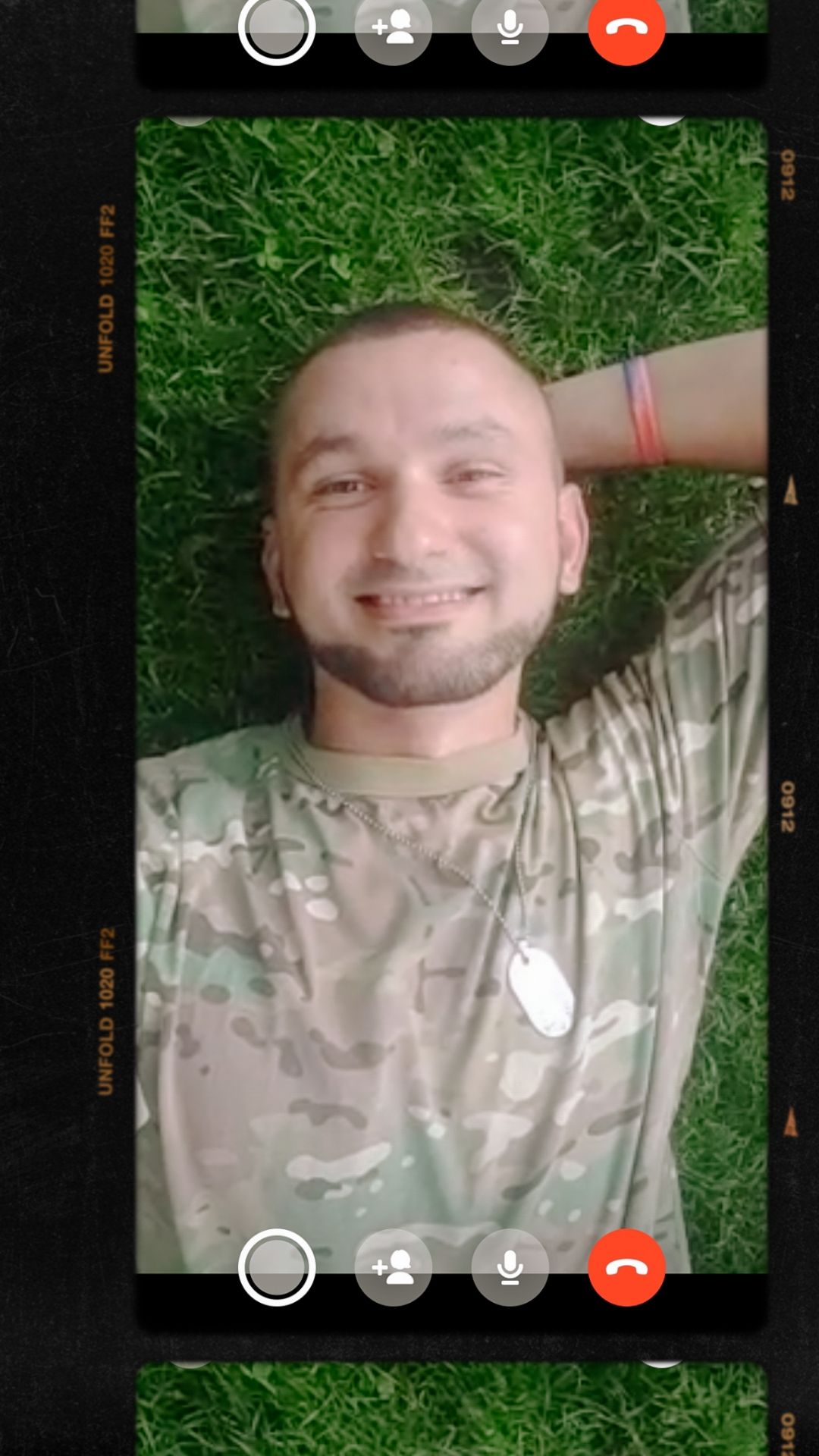
LGBT and politics
Not long ago a public organization called “Fulcrum” held a roundtable with the Human Rights Committee. I represented LGBT servicepeople there, and our closest ally was the head of “Women on the War” group Mariia Berlinska. At that meeting LGBT group presented a draft law on registered civil partnerships. We are following the example of America’s human rights activists in this area by attempting to enshrine our rights in the law.
Politicians always look at their electorate. If the LGBT community remains weak, it will not be reckoned with. If the voice of the community is heard, eventually we will be taken into consideration.
On parents of LGBT-children
Homophobic attitude of parents of LGBT-children is a part of the Soviet heritage on one hand and a consequence of religious beliefs on another. Soviet heritage is connected with prison culture, as many people in the USSR had gone through gulags. Later on, this culture had been brought to the armed forces. Up until 2014 the army culture in Ukraine was heavily saturated with homophobia.
Naturally parents are also anxious about these myths. Given the lack of information, parents see only one possible future for their children, that is, to marry with a person of opposite sex. And LGBT to them is just something about “gayrope” (wordplay of words “gay” and “Europe”) and America. Because indeed one takes a picture from the media, which is 80% negative: comic funny character, who hits on everyone and wears drag almost every day. This is the image that exists in parents’ imagination. After my coming out, my mother had experienced a tremendous shock. Then she wrote me a text message “I love you for who you are”. After these events our interaction had become even closer. When she told this news to my father, a cold sweat appeared above his upper lip. For some reason he instantly called one of his fellow workers and told that he’s quitting his job: at that time, he didn’t know what the reaction of his colleagues would be. A month later he conveyed through my mother that I could come home. We still don’t speak on the matter of my sexuality, though he doesn’t say anything bad. Being open is a much more pleasurable experience – now parents and people closest to me know everything about my life. There exists a certain “information vacuum” around the LGBT issue in Ukraine. When one sees a real gay person in front of themselves, they have a certain interest and ask questions, realizing that they have a living person standing next to them and not some kind of a myth. When they are given homophobic information, they accept it as well. We need to hurry and fill this vacuum before hostile propaganda had done it first. Russia, which has committed aggression against Ukraine, almost praises homophobia as its principal value, as it equals the fight against human rights. That is the cornerstone of Putin’s dictatorship. After my coming out, KyivPride held a roundtable with the Ministry of Defense. Representatives of the ministry have told us that according to our laws, Ukrainian army is a place where all citizens are equal. There are no restrictions, statements or even internal reports or memos about discrimination – so there is no homophobia. In the future I want to work with the army, hold trainings with servicemen and women, command personnel and thus fighting against homophobia.
My stance is a patriotic one – I want to make Ukrainian society progressive and democratic here and now. However, I do not condemn those who have family, children and go to places where it is possible to have all of that. I do not exclude this very option myself, should danger or a strong desire for such action appear. For now, I wish for an evolution to occur here and I want to be a part of it.
Photo by:
Arthur Aleksanian
Text by:
Artem Kuzmenchuk
We seek to assist Ukrainian LGBTQ + individuals living in the US and Canada to integrate, adapt, and productively contribute to American society.
Anna Konde
Балтімор, США
Pavlo and Brian
Los Angeles, CA
Aleksandr Smirnov
New York
Tanya Mazur
Washington, D.C.
Svitlana Zemlyana
Novi Sanzhary, Ukraine
Dmytro and Ronaldo
New York, USA
Dmytro and Phillip
New York, USA
Dmytro and Rob
New York, USA
Lyosha Gorshkov
Pittsburgh, USA
Damien and Dmytro
Chicago, USA
Roman and Anton
Атланта, США
Bogdan Globa
Washington, D.C.
Viachaslau and Shawn
Washington, D.C.
